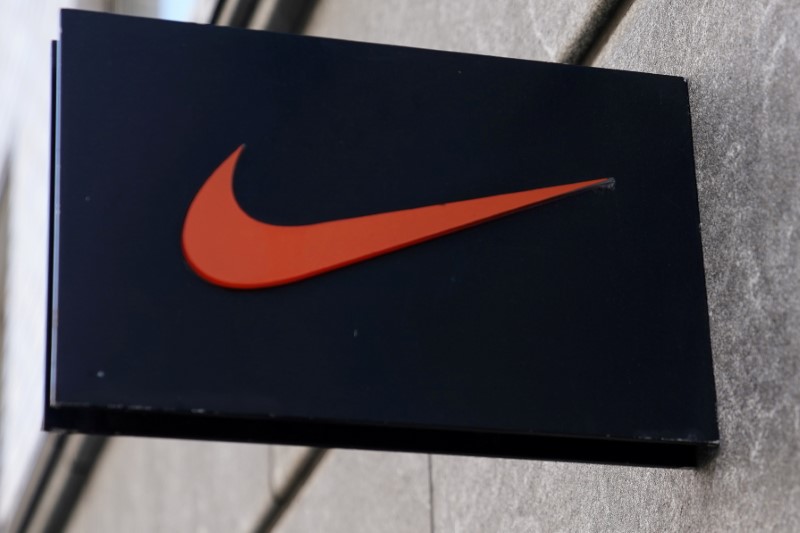(Reuters) - Nike Inc (N:NKE) beat estimates for quarterly revenue on Tuesday as strong digital demand offset the first China sales drop in nearly six years from the coronavirus-fueled shutdowns, but the company held back from providing a forecast due to the outbreak.
The epidemic forced Nike to temporarily shut down stores to help contain its spread in China, where it was first detected late last year. The company has now closed stores in Europe and the United States where the virus is rapidly spreading.
Governments around the world have also locked down cities and imposed stringent restrictions on travel, forcing people to turn online for their shopping needs.
"At a time when people were confined to their homes, we moved swiftly to leverage our digital app ecosystem and Nike Expert Trainer network," Chief Executive Officer John Donahoe told analysts on his first earnings call since taking the helm.
Digital sales climbed more than 30% in Greater China, while sales in the region, its fastest-growing segment, fell 5% due to the store closures in the reported quarter.
Overall digital sales grew 36% in the third quarter ended Feb. 29. Such sales accounted for nearly a tenth of the company's overall revenue in fiscal 2019.
Nike's shares rose about 11% in extended trading after gaining 15% in regular hours on Tuesday. The Dow component has lost nearly 30% of its value so far this year.
The company's reported numbers weren't disappointing, Wedbush analyst Christopher Svezia said, but the question on how the company will get through the pandemic remains.
"The curious question is, where do we stand now?"
Nike said 80% of its stores were now open in China and expected current-quarter sales to be flat in the region.
The company said it would continue to focus on new launches, a key growth driver, despite the cancellations or postponements of several sporting events, including this year's NBA and NFL seasons and the Tokyo Olympics.
Total revenue rose 5.1% to $10.10 billion in the third quarter, beating the average analyst estimate of $9.80 billion, according to Refinitiv IBES data.
Net income fell to $847 million, or 53 cents per share, from $1.10 billion, or 68 cents per share, a year earlier, due to the hit from the outbreak and a non-cash charge related to a shift to distributor model in South America.
